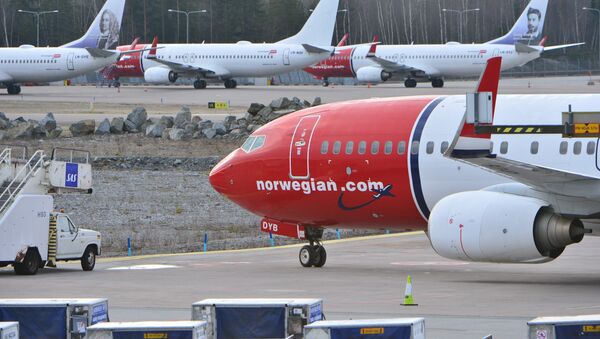The regulations may include brief security interviews with passengers from 280 airports in 105 nations across the globe, Chanel News Asia reports.
US President Donald Trump's administration imposed new rules earlier this year mandating "more thorough passenger vetting" and new "measures designed to mitigate the potential threat of insider attacks," Gen. John Kelly, then-secretary of Homeland Security and current White House chief of staff, said in June.
"Terrorist groups continue to target passenger aircraft, and we have seen a ‘spider web' of threats to commercial aviation as terrorists pursue new attack methods," a June DHS news release warned.
"Based on these concerns, the Department of Homeland Security is working to raise the baseline of global aviation security to keep the traveling public safe," DHS noted, adding that the effort would be conducted "in coordination with our international partners."
Indeed, the US Federal Aviation Agency will propose a ban on large electronic devices stored in checked bags at an upcoming United Nations event. Lithium-ion batteries found in these electronics pose a fire risk most airliners are ill-prepared to suppress, according to an FAA study.
"The threat is still severe… The terrorist organizations, be it Daesh (ISIS) or al-Qaeda or others, want to have the big explosion like they did on 9/11. They want to take down aircraft, the intelligence is clear on that," Acting DHS Secretary Elaine Duke said recently.
A representative for China Airlines called the new measures a "big issue," while Korean Airlines president Walter Cho told Reuters "it's just inconvenient for the passengers" and that customers should plan to arrive at the airport earlier than usual.
Airlines for America, a US-based industry association group, said the Trump administration had been flexible during the implementation of the "complex security measures."
The head of the International Air Transport Association, a trade association representing 275 airliners, or 83 percent of all air traffic, remarked in the Reuters report that the "unilateral measures announced without prior consultation" were "very concerning and disturbing."




